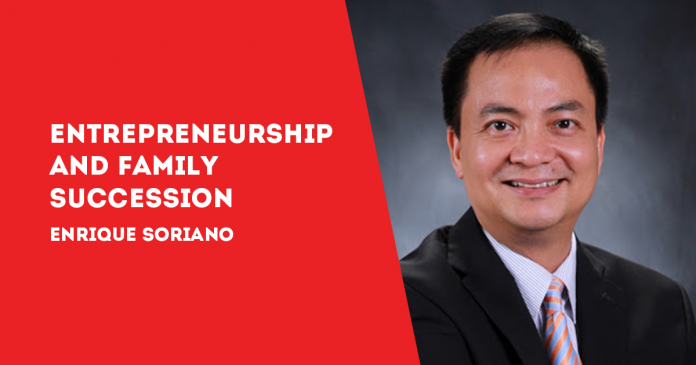
BY PROF. ENRIQUE SORIANO
“WHEN I introduced the Family Pay Performance Plan (F/PPP) model to my children, it took them several months to adjust and appreciate the benefits. But the shift from an ownership-driven to an incentive/KPI mindset (key performance indicator) was apparent.
“My children were no longer fixated on what they will own when I am no longer around. As you regularly communicated the benefits of the PPP, they soon realized the enormous cash flow they stand to receive…but to achieve it, they must work harder. And to my surprise, in the second year, the operating costs went down 30 percent for the same amount of production. The hard-working sibling was making twice as much as the complacent ones.
“I am now using the incentive pay for my nonfamily executives and it is working. I wish I knew about this plan much earlier!”
This email came from a visibly elated business owner. And the added bonus is that he is no longer agonizing on how and what to compensate his children. Pay can be thought of in terms of the total compensation and reward package of an employee, be it a family or nonfamily executive. Typically this includes an individual’s base salary, variable pay, share ownership, and other benefits.
In Asia, a most common financial carrot is a bonus and it is classified as a form of variable pay. It is also a one-time cash payment, often awarded during the last month of the year to performing individuals for reaching pre-agreed targets.
Take note, a bonus is given for exceptional performance, but for family owning businesses especially closed corporations, bonuses given to family members are no longer the result of a family member’s accomplishment but is something that he or she expects regardless of the company’s performance.
There is also an incentive pay and is generally given for specific performance results rather than simply for time worked. While incentives are not the answer to all human resource or personnel challenges, they can do much to increase family employee performance.
In this three-part series, we will cover formal incentive schemes tailor fitted to relatives working in the family enterprise.
In our research, most family business leaders apply a combination of the old and informal model and in most cases highly emotional and whimsical driven. The old model is correlated to time served translating to bigger pay and the informal model applies to additional allowances for family employees or offspring with a bigger family size e.g. higher pay for an offspring with more children.
The founder initiated, haphazardly designed compensation and benefits program bereft of any scientific and behavioral reference can make an already recurring and sensitive problem even worse. It is bound to fail and will create schism not just among family members but within the organization itself.
It is the right thing to do
I was once asked by a client why I was so adamant in pushing for a formal PPP in my governance intervention and my answer was straightforward: “It is the right thing to do! I also added that a well-structured pay and incentive program can boost productivity and instill a sense of shared responsibility among family members.
“In our experience crafting customized PPP’s for clients in Asia, our team would always generate feedback from frustrated family members that show their dismay, albeit discreetly, on the current pay policy introduced by their business owner/parents. This is an elephant in the room and leaders appear to be ignoring it or are looking the other way.
“A family member of another client family even vent his disappointment in one of our casual conversations, ‘Since we joined papa’s business, the compensation policy was always causing the most anxiety. I just don’t understand why he is still insisting on a plan that is sowing division among us siblings!’”
With our drive to structure the right PPP, most family firms that we have worked with are now enjoying and employing long-term compensation programs that measure performance metrics. And it is now rewarding family executives that have performed well. (To be continued/PN)

